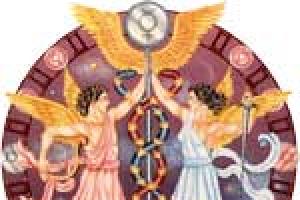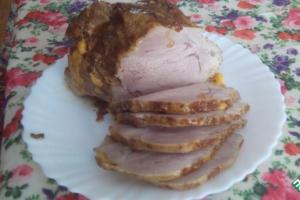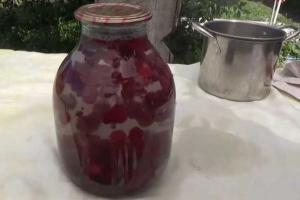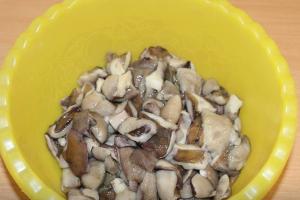Many peoples live on the modern territory of Ukraine: Ukrainians, Russians, Belarusians, Greeks, Armenians, Jews, Bulgarians, Georgians. This diversity of nations is due to the historical development of this state. Ukrainian female names have an ancient and distinctive history.
Brief information about the history of the appearance of Ukrainian names
In ancient times, the lands of Kyiv, Zhitomir, Poltava, Chernigov and other central regions of Ukraine were inhabited by tribes of pagan Slavs. The emergence of the state of Kievan Rus is associated with the legend about the arrival of the Vikings, who were the first rulers of Rus': Rurik, Igor, Olga, Oleg - all these names are of Scandinavian origin.
After the Christianization of Rus' by Prince Vladimir, the original Slavic and Scandinavian pagan names began to be gradually replaced by Greek ones. However, fortunately, the people did not abandon their culture. Newborns began to be given two names: one - Slavic (pagan), and the other - Greek (Christian). It was the stability of tradition that made it possible to preserve the original flavor of Slavic names.

With the further division of Rus' into the Kiev and Moscow principalities, with the expansion of the territory of the state and the settlement of the Slavs from Moscow to the shores of the Sea of Azov, Russian and Ukrainian female names, which historically have a common origin, began to differ.
The difference between Russian and Ukrainian names
When the center of Kievan Rus shifted to Muscovy, Christianity became a truly native religion for the people of Rus', classes appeared in society (peasants, boyars, princes), and cultural interaction between the state and other countries of Europe and Asia began to develop. As a result of the strengthening of Christianity as the state religion, newborns were given two names: one was chosen according to the calendar (this name was often recommended by the priest), and the second was Slavic, used in the home circle.
With the increase in literacy in society, Slavic names began to gradually fall out of use and were replaced by Christian names, especially those mentioned in sacred texts. Old Russian and then Russian society, especially its most affluent stratum, increasingly adopted European culture.

At the same time, on the territory of modern Ukraine, ancient traditions were preserved and maintained among the common people. If in Ancient Rus' Slavic names were used mainly in the family, and officially a person was represented by the name given to him at baptism, but in Ukraine the situation was the other way around. The main name was considered Slavic. Perhaps this is the reason why Ukrainian female names have retained their national flavor.
Phonetic features of Ukrainian names
Foreign names, once in the ancient Russian environment, changed their pronunciation. So, for example, the Greek name Anna in the Ukrainian language acquired the form Ganna, the name Ksenia - Oksana, and the name Theodora - Todora.
This happened because in the Old Russian language, which was spoken 1000 years ago by the Slavs of Kievan and Moscow Rus (it was one language), the sound f- was not there at all, for the Slavs it was difficult to pronounce, and it was replaced with a more convenient sound T-. This is how the name Todora appeared.

And the sound A- in the language of the Eastern Slavs never stood at the beginning of a word (absolutely all concepts that in Russian or Ukrainian begin with A-, are of foreign origin: watermelon, arba, aria, aquamarine). This is how the Ukrainian forms appeared: Oleksandr, Oleksiy, Olesya, Oksana. From parallel Russians, for example Aksinya, formed from the Greek Xenia.
It must be said that replacing the initial A- on O- was characteristic of the entire folk environment of Rus' (and not just the territory of modern Ukraine). Thus, the Russian merchant from Tver Afanasy Nikitin in his book “Journey over Three Seas” (XV century) calls himself Ofonasiy.
Ancient monosyllabic female names
Ancient Ukrainian female names can consist of one root (Vera, Volya, Zhdana). Some of these ancient names are common, while others have fallen out of use. Monosyllabic female names for Ukrainians include, for example, those presented below.
Ancient two-syllable female names
Currently, Ukrainian female names consisting of two roots are a little more common. Vladislava - from the words “glory” and “vlada” - strength, courage. Zlatomir - from the concepts of “peace” and “gold” - gold. The meaning of native Ukrainian female names (list below) is sometimes easy to determine independently by the root of the word. Next we will consider specific examples. Two-syllable Ukrainian female names are beautiful, melodic, colorful. They reflect the music and poetry of the people. An example of them are the following: Bozhemila, Boleslava, Bratolyuba, Dobrogora, Druzhelyuba, Zlatomira, Lyubava (“beloved”), Lyubomila, Lyubomira, Lyuboslava, Mechislava, Miroslava, Mudrolyuba, Radmira, Svetlana, Svetoyara.

As can be seen from this list, rare Ukrainian female names most often contain the syllables - glory, -love, -mila, -peace. It can be assumed that this principle of word formation contains the primordial values of the Slavs: to be loved, feminine (“sweetheart”), kind (“peace”) and brave (“glory”).
Modern Ukrainian names
In modern Ukraine, we mainly find the same names that are used in Russia and Belarus. They are of Slavic, Greek, Roman, Jewish and Scandinavian origin. However, unlike Russian society, in Ukraine there is a gradual increase in interest in ancient names, which indicates an increasing spirit of patriotism in society and attention to its own cultural traditions. This is especially typical for the western regions of the country, where newborn girls are increasingly given the ancient Slavic names, which are presented above.
However, despite the fact that the number of newborn girls who are given Slavic names increases every year, in the country as a whole the choice of names is still influenced by the general fashion from Eastern Europe.

Popular female Ukrainian names: Alina, Alisa, Anna / Hanna, Bogdana, Victoria, Veronica, Darina, Diana, Elizaveta, Katerina / Ekaterina, Christina, Lyudmila, Nadezhda, Natalya, Maria, Oksana, Olesya, Sofia, Tatyana, Ulyana, Yulia .
Conclusion
Female names common on the territory of modern Ukraine are diverse both in meaning and in history of origin. However, of all the East Slavic peoples, Ukrainians (especially from the western regions of the country), it seems, have retained ancient Slavic names in their onomasticon more than others. Once upon a time they were used by all Slavs, but with the adoption of Christianity they were gradually replaced by Greek and European ones.
In the time of our ancestors, the names given to newborns had special meanings. Nowadays, few people are interested in secret meanings. This material will tell about Ukrainian names and their history.
Historical excursion
Ukrainians took to a greater extent some of the names from the Orthodox calendar and, to a lesser extent, the traditional names of the Slavs.
For a long time, the Eastern Slavs used the ancient names of their pagan ancestors along with church ones. And so it happened: when a person was baptized in a Christian church, he received a church name, and at birth he was called ordinary. Thus, the child was protected throughout his life by two deities: a pagan god and a Christian saint. Church names, according to numerous written sources, were hidden from all strangers. This is how a person protected himself from slander, damage and the evil eye. Double names are still common these days.
Over time, Church Slavonic names firmly entered the everyday life of Ukrainians and began to be perceived positively by them. Due to the specifics of the language and the peculiarities of pronunciation, they have changed slightly. For example, Ukrainian names never began with the letter a: Oleksandr (Alexander), Overky (Averky). Similar modifications occurred with the letter f: Khved (Theodore), Panas (Athanasius). However, names with this letter at the end still exist today: Eustathius, Joseph. Diminutive forms have become full-fledged replacements: Levko (formerly Lev), Palazhka (formerly Pelageya), Varka (formerly Varvara), Gritsko (formerly Grigory), Yurko (formerly Yuras), Timysh (Timofey).
What's popular these days?
There is the following classification of Ukrainian names:
- Names that came from the old Orthodox calendar(Larissa, Oleksandra, Olena) are quite common, they are still called children;
- Ukrainian male names, the roots of which extend from the Old Church Slavonic language and its numerous dialects: Svyatoslav, Vladislav, Yaroslav, Yaropolk, Yaromir, Vsevolod;
- Polish with Catholic origin: Lubomir, Teresa, Wanda;
- Ukrainian female names that came from other countries, following fashion trends: Karina, Zhanna, Josette.
Most of the modern Ukrainian dialects are of Romano-Germanic origin. They are characterized by ancient symbolism (everyone, without exception, has meaning and meaning), and two-syllables: Miroslav, Bratolyuba.
What were the most common names for children in Ukraine this year?
Statistics report that last year the most popular names for girls and boys in Ukraine were Alexander (Sasha) and Anastasia (Nastya). They are beautiful and have excellent positive characteristics, whose authenticity is proven by the happy destinies of thousands of Nastya and Sasha who have already lived their lives on earth. Alexander has always been considered the winner, and Anastasia means “reborn.” By naming children this way, people hope for a bright future, a good and calm life.
The top popular female names in the last six months also included Anna (Anyuta, Anya), Alena (Alenka), Valentina (Valya), Polina (Polya), Natalya (Natasha), Elizaveta (Liza). Ancient names are now in less demand, people more often pay tribute to fashion.
The boys were most often called like this: Maxim (Max), Dmitry (Dima), Phillip, Egor (Egorka), Nikita. Many of these names have Slavic roots and are actively used in Russia and the Near Abroad.
The rarest names
What was the least common name for boys? These were: Zelai, Augustine, Loammius. These names are unusual, they are difficult to pronounce and combine with the surname and patronymic of an ordinary Ukrainian. Children named this way may have problems with peers at school and in the yard.
The girls received the following rare names: Karabina, Indira, Elya, Aladina. They are rarely used due to the difficulty of pronunciation and cacophony in conjunction with the often most common surnames of Ukrainians.
List of beautiful Ukrainian names
| Girls | Boys | ||
|---|---|---|---|
| Agatha | Kind, friendly | Agape | Honest, clean, open |
| Alina | Different from others | Arkady | God's Favorite |
| Anfisa | Starry, shining | Georgiy | winner |
| Bogolyuba | Loving God | Valentine | valuable |
| Vista | Looking to the future | Alexei | Kind, protecting the poor |
| Agnia | Pure, chaste | Benjamin | leading |
| Zlata | precious | Vsevolod | Commander, leader, leader |
| Lyubava | loving | Gavrila | Strong, memorable |
| Malusha | Small, valuable | Dorofey | Messenger of Heaven |
| Velimira | Peaceful, quiet | Roots | Will find a way out in any situation |
| Dana | Bestower of blessings | Makar | happy |
| Lyudmila | Sweetheart to people | Fedot | Joyful, radiant |
| Snezhana | Cold, modest | Nahum | Giver of bright thoughts |
The baby's naming should be happy and joyful, give hope for the best and warm with its sound. Only loving parents who wish him happiness can name a child this way.
1 Name
1) im"i (r. im"i and archaic name, im. pl. names), name(s), ( dial) name, (title) name, name, name; mind. Namely, for hire. The proper name of the godfather is Vlasne, khreshchene im"ya (name). The name of an object, animal is the name of speech (object), creature. The name of a father, a friend is father's, friend's name (name). Full name - external name, first name. [Khiba cannot be called by the first name: Gerasim? (Mova)]. First name, patronymic, surname - first name, according to my father’s nickname. To give a name - to give a name to someone; cf. To name, to give a name 1. To bear a name - to be called. To "reveal your name" - to name, to "reveal your name" (name). By name - on im"ya (on m"ya), on name, on name, [Literary person on "im"ya Zacharia (St. P.). On name Yalina (Lipov. p.)]. To be someone only by name - buti kim only (ly) on the name, im"yam. Call someone by name - call someone by name. What is your name? - how do you like it, how do you like it? What is your name (name)? [I don’t know who you are and what is your name (Samiil.)]. What is his name? - how is it (yogo) on im"ya (name)? how is yomu im"ya (name)? [And what is the name of that gentleman? Ivan? (Zvin.) What is the name of that gentleman? (M. Vovch.)]. By his name - yogo im"yam, for yogo im"yam, (by him) by yomu. School named after Frank - school named after Frank. In the name of whom, what, whose - it - in it "I whom, what, in it" I am (whose I am) ( gal.) in the name of whom. [In the name of the people I take you, the enemy of great order (Kulish)]. In the name of the law, the king, the emperor - in the name of the law, in the name of the king, the emperor, ( gal.) in the name of Tsar. I beg you in the name of our friendship - I bless you in the name of our friendship. In the name of what - in the name of what. [In him is my merit (Kulish)]. In the name of God - in him I am God. In the name of someone - for whom, for whom (whom). Buy an estate in the name of a wife - buy a garden for a woman named, for a woman. A letter addressed to such and such - a sheet of paper addressed to such and such. On behalf of whom, on whose behalf - in whom, on whom, in whose name, ( gal.) in the name of whom. [They operated instead of the master himself and on his day they populated the unworldly deserts (Kulish). They gave Devison his death sentence (death sentence) (Grench.)]. On my behalf - in my name, in my name, ( fam.) with my lip. [So tell him with my lip that he is a fool (Zvin.)]. Have no other name than - not the mother of another im"I, as; do not come from anything. [Enlightenment will not be a laughing stock; we will not get out of the bystruk (Kvitka)]. Their name is legion - and their name is legion ;
2) (reputation, fame) glory, im"ya. A good, honest name is good glory, good im"ya. [They received good glory (Shevch.). All my wealth is my good name (Kotl.)]. A bad name is bad fame, disgrace. To acquire a name, to make a name for yourself - (h) get, gain (your) name, fame (and glory). To sully your good name is to tarnish (temper) your good name, your good glory. A person with a name is a person with a name;
3) gram.- im"ya. Noun, adjective, numeral - imennik (speechman), prikmetnik, numeral (s). Proper noun, common noun, collective - im"ya vlasne, zagalne, zbirne.
1) im"i" genus. P. Name and im"I; (preim. about the personal name of a person, about the names of objects, phenomena) Name, name
in the name of someone or something - in it "I am someone or something"
in the name of someone or something - in the name of someone or something
the name of someone - the name of someone
call things by their (proper, real) names - call speeches by their (powerful, true) names
bear the name - mother im"ya"
on behalf of someone - in the name of someone
by name - on ім "я", on іменья
with a world name - with a light name (name)
make (make) a name for yourself - make yourself a name
only by name - (outwardly, formally) only (less, more) behind the name (for the name)
2) gram. im"i"
adjective - prikmetnik
noun - name holder
numeral noun - numeral
collective name - zbirne im "ya"
2 Name
3 Name
4 Force
See also in other dictionaries:
NAME- an expression of language that can be used as the subject or nominal part of the predicate in the simple sentence “S is P” (or: “... is ..."). For example, the expressions “Harvey”, “Mendeleev” and “the man who discovered blood circulation” are I., ... ... Philosophical Encyclopedia
NAME- Wed name, denomination, word by which one is called means an individual, a person. Name of the item, title; animal name, nickname; person's name. in fact, the name, according to the saint, is angelic, godfather and advert, which in old times was not announced; patronymic or hiv;… … Dictionary Dahl
Name Bible. Dilapidated and New Testaments. Synodal translation. Bible Encyclopedia arch. Nikifor.
Name- a permanent name assigned to a person, an animal, or sometimes a thing, which serves to distinguish them from other similar creatures or things. Most everyday names, by origin, seem to be nicknames, associated with one or another property... ... Literary encyclopedia
Name- NAME is a permanent name assigned to a person, animal, sometimes thing, which serves to distinguish them from other similar creatures or things. Most everyday names, by origin, seem to be nicknames, associated with one or another... ... Dictionary of literary terms
Name- 'a name in the biblical sense is not only a name, but the essence and meaning of what is named (Gen.17:5,15; 1Chron.22:9; Jer.20:3; Acts.13:8; Phil.2:9 10; Heb. .1:4; Heb.7:2). Now a name is often given to a person and objects as a mark, a sign, in order to distinguish them... Complete and detailed Bible Dictionary to the Russian Canonical Bible
NAME- NAME, gender. and dates name, name, name, plural. names, names, names, cf. 1. A distinctive name, a designation of a person given at birth. Give someone a name. What is his name? “What’s your patronymic name?” Dostoevsky. Collective farmer, by... ... Ushakov's Explanatory Dictionary
Name- Name, nickname, nickname, patronymic, surname, pseudonym; nickname, name, term, title, company; title, epithet. Names (of objects), terminology, nomenclature. See reputation, fame.. big name, give a name, bear a name, beg... ... Synonym dictionary
Ukrainian names have a lot in common with Russian and Belarusian ones. This is not surprising, because our peoples have common roots and the same history. The intertwining of destinies has led to the fact that now in Ukraine they are asking to register children in the Russian form of the name, while in their native language it may sound completely different. What is so special about Ukrainian names?
Let's look into the past
Now in Ukraine the fashion is returning to call children with Old Church Slavonic names. So in kindergartens and schools you can meet girls Bogdana, Miroslava, Bozhedana, Velena, Bozhena. The boys are named Dobromir, Izyaslav, Lyubomir. But that's just modern tendencies, although they were observed for almost the entire century-long history of the fraternal people.
When Christianity was adopted in Rus', everyone began to be baptized in the church and given the names of the holy great martyrs. This tradition continues today. But we still continue to name our children exactly as it is written on the certificate? Why does this happen?
It turns out that this phenomenon is more than a thousand years old. Since the first Christian years, people who were accustomed to this continued to name their children. And what the church requires of them simply remained on paper. So the names could actually be different. Bogdan was baptized as a child under the banner of Saint Zinovy, and Ivan as Istislav.

Examples of names of Christian origin
But the language of the people is great and powerful, so some Ukrainian names were nevertheless borrowed from the Christian faith. Over time, they were changed and adapted to the delicate sound of the colorful language. By the way, there are analogues that are originally Russian. For example, Elena in Ukraine sounds like Olena, Emilian - Omelyan, Glikeria - Likerya (Russian: Lukerya).
In the Old Russian language there were no names that began with the first letter of the alphabet A. This rule later passed to Ukraine, with the exception of the names Andrey (Andriy, although in some villages you can hear Gandriy) and Anton. But Alexander and Alexey, who are more familiar to us, got the first O and turned into Oleksandr and Oleksiy. By the way, dear Anna in Ukraine sounds like Ganna.
Another phonetic feature of the ancient language is the absence of the letter F. Almost all words with F were borrowed from other countries. That is why the Christian versions of Thekla, Philip and Theodosius turned into Tesla, Pilip and Todos.

Ukrainian male names
It is simply impossible to name all the names that are suitable for boys and that will be considered originally Ukrainian. There are a great number of them and they all have Old Slavic roots. We propose to consider the most common Ukrainian male names and their meaning.

Female names
Many female names are derived from male names. List of Ukrainian names in feminine form:

The meaning of Ukrainian names can be understood from the name itself. Original Ukrainian words were used to reflect their meaning on the child’s character. Therefore, if you read Miloslav, it means that this sweet creature will definitely become famous.
How to read Ukrainian names correctly
In the Ukrainian language, almost all letters are similar to Russian ones. Except for a few. They are especially difficult for residents of other countries, since the language requires them to be pronounced smoothly and softly.
So, the letter g comes in two versions. The first ordinary one is read gutturally, softly, and the second with a tail is read more firmly. Besides:
- e is read like Russian e;
- her:
- i - and;
- and - similar to s;
- ї - like "yi"
- ё - like Russian ё.
Features of modern names
Modern Ukrainian names have already lost their uniqueness. Of course, parents in the western regions and some central regions still preserve ancient traditions, but the rest of the population and especially large cities prefer to use Russified forms. By the way, information about a person is written in two languages - national and Russian.
Ukrainian traditions of compiling and assigning names
The list of Ukrainian names is close to the Russian, as well as the Belarusian, since all three peoples had common sources - these are both Orthodox calendars and pagan names. The latter functioned for a long time on a par with church ones: in everyday life a person was called by the name that his parents gave him, pagan, and not the church. For example, Bogdan Khmelnitsky had a church name Zinovy, which was rarely mentioned. The ancestors of Ukrainians believed that in this case a person would be under the protection of two different mystical principles - paganism and Christianity.
Over time, the names of the church calendar entered everyday life and began to be perceived as family. Under the influence of speech, church Ukrainian female names underwent phonetic changes, as a result of which their own variants appeared. Thus, the borrowed Alexandra, Anna, Agripina turned into Oleksandr, Ganna, Gorpin (in the Ukrainian language the initial “a-” is transformed). Names that contain the letter “f” also change: Theodore - Khved, Yosif - Yosip, Osip.
Historically, East Slavic languages did not have an f sound, which is reflected in the already mentioned form “Opanas”, as well as in the now obsolete version of the name Philip - Pilip. In popular speech, the letter “f” was usually replaced by “p” (Philip - Pilip), while “fita” was most often replaced by “t” (Thekla - Teklya, Feodosius - Todos, Fadey - Tadei).
Many names were formed using diminutive suffixes: Lev - Levko, Varvara - Varka. At the same time, they were considered full names, which were used not only in everyday life, but also in official documents.
Modern Ukrainian male and female names consist of several types: names from the Orthodox calendar, as well as their folk and secular forms; Slavic names (Volodimir, Vladislav, Miroslav, Vsevolod, Yaroslav); names of the Catholic calendar (Casimir, Teresa, Wanda); borrowings from other languages (Albert, Zhanna, Robert, Karina).
Modern trends
The most popular women's and male names in Ukraine the following were recorded: Danilo, Maxim, Mikita, Vladislav, Artem, Nazar, Darina, Sofia, Angelina, Diana.
In Ukraine, over the past few years, about 30 names have remained popular when registering children, the most common of which are the names Alexander and Anastasia.
Currently, however, there are large segments of people with mixed Ukrainian-Russian identification who may prefer one or another version of the name, which does not always coincide with the form, declared nationality and language of the document. That’s why now both Anna and Ganna are written in passports; and Olena and Alona; both Natalya and Natalia, depending on the desire of the bearer.
It should also be noted that many typically Ukrainian forms of Orthodox names, starting in the 1930s, in Soviet Ukraine were gradually replaced by their Russian or quasi-Russian counterparts, and were preserved only in the western regions. For example, in eastern Ukraine, instead of the traditional Ukrainian Todos, Todosіy, the Russified form Feodosіy is currently used.
Names that are not very common among ordinary people until the beginning of the twentieth century, for example, Victor, have identical forms in the Russian and Ukrainian languages.
Most often, Ukrainians choose among male names:
Alexander, Danil, Maxim, Vladislav, Nikita, Artem, Ivan, Kirill, Egor, Ilya, Andrey, Alexey, Bogdan, Denis, Dmitry, Yaroslav.
Among female names the most common are:
Anastasia, Alina, Daria, Ekaterina, Maria, Natalia, Sofia, Yulia, Victoria, Elizaveta, Anna, Veronica, Ulyana, Alexandra, Yana, Christina.
However, the sympathy of Ukrainians for names that are strange or unusual for Ukraine does not decrease. So, in Lately Boys named Loammiy, Lenmar, Justik, Ararat, Augustin, Zelay, Pietro, Ramis and girls named Elita, Navista, Piata, Eloria, Karabina, Yurdana were registered.
The indicator of Ukrainians who, at a conscious age, expressed a desire to change their name remains constant.
The Ukrainian name book is close to Russian and Belarusian, since the main sources of names for all three peoples were Orthodox calendars and, to a lesser extent, the traditional circle of pagan Slavic names.
As is known, among the East Slavic peoples, pagan names functioned for a long time in parallel with church names. Having received a church name at baptism, a person in everyday life used the traditional Slavic name given to him by his parents. Among Ukrainians, this custom lasted for a very long time: for example, Hetman Bohdan Khmelnitsky bore a double name - Bogdan-Zinovy (the church name Zinovy was given at baptism, and the Slavic Bogdan acted as the main name).
However, names from the church calendar gradually entered Ukrainian life and were no longer perceived as borrowed. At the same time, under the influence of folk speech, they underwent strong phonetic changes, and as a result, in parallel with the canonical church names their secular and folk variants arose: Elena - Olena, Emilian - Omelyan, Glikeria - Likerya, Lukera, Agripina - Gorpina (the same process occurred in the Russian language: cf. Elena - Alena, Emilian - Emelyan, Glikeria - Lukerya, Agrippina - Agrafena).
Like the Old Russian language, Ukrainian does not allow an initial a-, so the borrowed names Alexander, Alexey, Averky turned into Oleksandr, Oleksiy, Overky. Initially unusual Ukrainian language the sound f in popular speech turned into p or xv: Theodore - Khvedir, Khved; Afanasy - Panas, Opanas; Evstafiy - Ostap; Yosif - Yosip, Osip (although in parallel the Ukrainian language still uses the forms Athanasiy, Evstafiy and Yosif). In Western dialects, the sound f, denoted in writing by “fitoy,” turned into t: Feodor - Todor; Afanasy - Atanas.
Many folk forms were formed using diminutive suffixes: Grigory - Gritsko, Pelagia - Palazhka, Lev - Levko, Varvara - Varka. Nevertheless, despite their external “diminutiveness,” they were perceived as full names. Thus, the sons of Bohdan Khmelnitsky were known among contemporaries under the names Yurko (Yuras) and Timish, although their baptismal names were Yuri (Georgiy, Russian Georgiy) and Timofiy (Russian Timofey).
Modern Ukrainian names can be divided into several categories:
1) The most extensive layer is the already mentioned names from the Orthodox calendar and their folk and secular forms. Some names are predominantly common in folk form: Mikhailo, Ivan, Olena, Tetyana, Oksana, Dmitry (church Michael, Ioan, Elena, Tatiana, Ksenia, Dimitri). Others are more common in the church (canonical) - Evgeniya, Irina, Anastasia, although these names also have folk variants: Ivga/Yugina, Yarina/Orina, Nastasia/Nastka. Olesya and Lesya are very popular as passport names, initially - diminutive forms of the names Oleksandra and Larisa (the male version Oles/Les is less common).
2) Slavic names: Vladislav, Volodymyr ( Russian Vladimir), Miroslav, Yaroslav, Svyatoslav, Vsevolod, Stanislav. Note that in Ukraine Slavic names are more common than in Russia; Also, female forms are used more often: Yaroslava, Miroslava, Stanislava, Vladislava.
3) Names from the Catholic calendar, which spread thanks to contacts with Catholic Poland and are found mainly in the western regions of Ukraine: Teresa, Wanda, Witold, Casimir.
4) Names borrowed from other languages relatively recently: Alina, Alisa, Zhanna, Diana, Albert, Robert, Snezhana, Karina.








